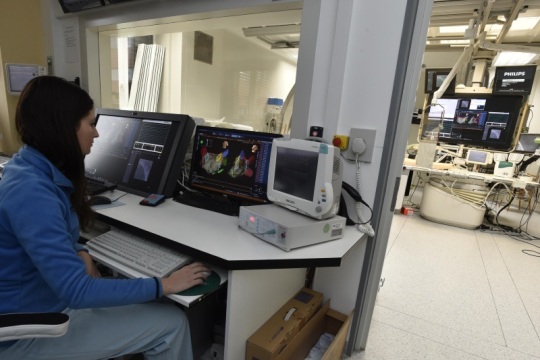Renew: 07/19/2023 18:26
Issued by: 07/19/2023, 18:25
Prague – Rules for electronic management of health documentation were endorsed by the government at today’s meeting. Deputy Health Minister Josef Pavlovic (Pirate) told reporters. The ministry wants amendments to the law on health services to take effect from January. He explained the need for change because current medical documentation lacks adequate definitions. Additionally, these regulations rely solely on paper forms and do not provide a “consistent, technically feasible, and operationally efficient” way to store documentation in electronic form.
These new regulations should define medical documentation as a collection of information maintained, processed and stored for the purpose of providing healthcare services to a specific patient. And this is regardless of whether the service provider obtained it from the patient, from another provider, another person or through its own activities.
According to the Ministry, what differentiates medical records from other documents is whether the relevant information is collected for the purpose of providing health services or not. Thus, this includes, for example, the patient’s identity, medical history, health status, list of healthcare services provided, or laboratory results. Rather, it is not about paperwork and documents to bill insurance companies or self-payers or records kept because of complaints and legal disputes.
The regulations expressly state that medical documentation can be stored in paper and electronic form, which can also be combined. “Medical documentation must be maintained and processed in a manner that is verifiable, truthful, understandable, and legible,” the proposal states. The amendment also establishes the purpose of viewing medical records without the patient’s consent.
“Service providers would gain the ability to store documentation in purely electronic form, which would either have a neutral or positive impact on their budgets, while potentially improving the quality of care for physicians and patients,” the proposal states.
The law also regulates the functioning of the National Health Information System (NHIS) and introduces a definition of telemedicine health services. Therefore, this regulation introduces the provision that health services can be provided remotely using telecommunications and information technology. However, this is only possible under the conditions determined by law and when the technical requirements for the quality and security of communications are met.
According to Pavlovica, the specific possibilities of telemedicine will be determined later through negotiations between insurance companies and doctors. According to him, the use of modern technology should allow, for example, chronic patients not to visit a doctor in person during a flu epidemic. The doctors can share the results, and he will then decide on further treatment remotely.

“Certified bacon geek. Evil social media fanatic. Music practitioner. Communicator.”







